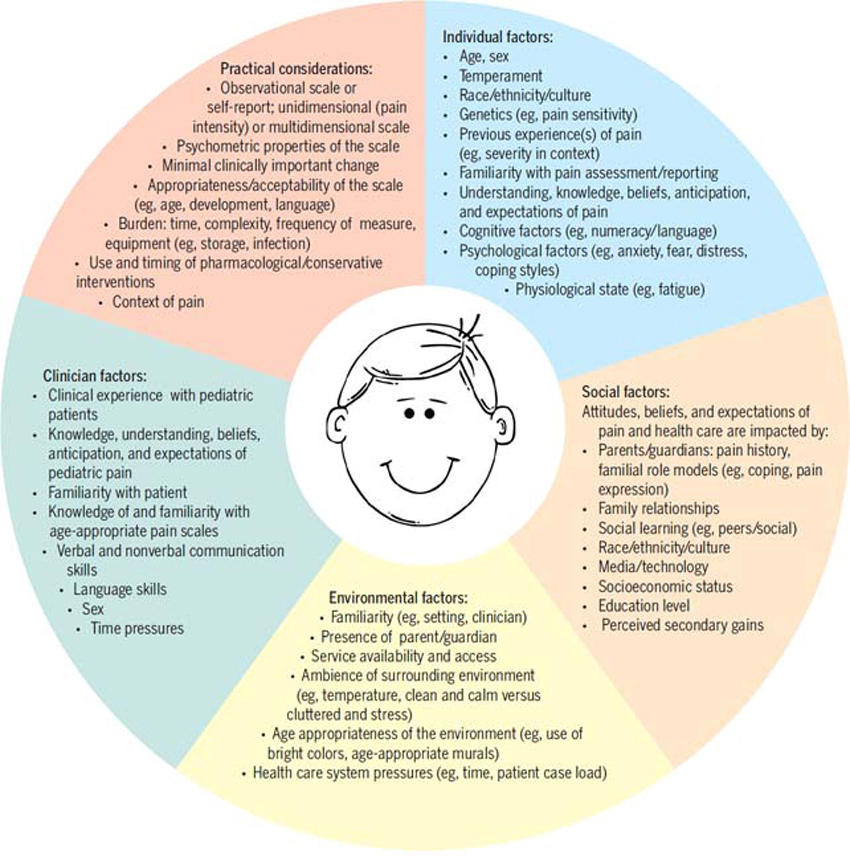MDs Admit Low Confidence In Diagnosing Musculoskeletal Complaints in Children
SOURCE: Journal of Pediatrics 2009 (Feb); 154 (2): 267–271
Sharmila Jandial, Andrea Myers, Elspeth Wise, Helen E. Foster
Musculoskeletal Research Group,
Newcastle University, Newcastle Upon Tyne,
United Kingdom. sharmila.
jandial@ncl.ac.uk
A recent study, published in the Journal of Pediatrics, details the results of sending questionnaires to a broad spectrum of British medical providers (practicing in Primary Care, Pediatrics, Emergency Care, and Orthopedics management). These doctors were asked to self-rate their confidence in pediatric musculoskeletal clinical assessment.
The depressing results are that 73% of these doctors graded themselves as having “low” to “no” confidence in their pediatric assessment skills. [1]
Considering that musculoskeletal complaints are the primary reason that parents bring their children to a medical provider [2], it’s no wonder that more and more parents now bring their children to the undisputed leader in NMS management…chiropractors. [3]
REFERENCES:
- Doctors Likely to Encounter Children With Musculoskeletal Complaints Have Low Confidence in Their Clinical Skills
The Journal of Pediatrics 2009 (Feb); 154 (2): 267–271 - The Safety and Effectiveness of Pediatric Chiropractic: A Survey of Chiropractors and Parents in a Practice-based Research Network
Explore (NY) 2009 (Sep–Oct); 5 (5): 290–295 - End Medical Mis-Management of Musculoskeletal Complaints
A ChiroZINE Editorial






[…] This post was mentioned on Twitter by New Beginnings and others. New Beginnings said: MDs Admit Low Confidence In Diagnosing Musculoskeletal Complaints in Children: A recent study, pub… http://bit.ly/hzrumq #chiropractic […]
My guess is that part of the doctors’ hesitation in assessing the conditions is the knowledge that there’s not a lot they can do for the children. Whether or not the assessment happens, their prescription is probably going to be the same anyway: drugs or braces. I’d be curious to know if the British chiropractors have branded themselves as NMS practitioners.
Birth trauma often results in joint problems and tightness in muscles that can be sucessfully treated by conservative chiropractic care. It is not surprising that chiropractic medicine is the most common complementary and alternative medicine practice used by children.
Pediatric chiropractic care should be the first line of defense when it comes to musculoskeletal complaints in kids. Imagine if we as adults took as many tumbles per day as your average toddler!! In my experience, the little guys like soft tissue work and enjoy being adjusted. History taking is a bear though. Getting a clear picture of what happened exactly can be a trick though, especially if Mom or Dad weren’t there when it happened. Maybe the patient communication issue is why the British MDs confidence is so low?
RESPONSE:
I don’t have access to the full-text, or the questionnaire, but the abstracts specifically mentions lack of confidence in clinical NMS assessment of children, and does not mention patient communication skills at all. This same group did express confidence in assessing cardiovascular, respiratory, and abdominal systems.
It would be interesting to see the age range involved as well. Difficulty in diagnosing children who cannot yet speak is understandable, but if the uncertainty in assessment extends to older kids then that speaks volumes. Is it that they didn’t learn how or that they don’t want to take the time to do a proper musculoskeletal exam? I would also be curious to learn as to whether or not they referred their patients to chiropractors, or treated them anyway despite their “low to no” confidence.
RESPONSE from Frank:
In answer, the article specifically states:
Most respondents (92%) recalled some teaching of adult MSK medicine, mostly at undergraduate level. Fewer (51%) recalled any teaching of pediatric musculoskeletal (pMSK) clinical assessment medicine.
Great post….With the increase in chronic childhood disease, many parents seeking alternative health care for their kids are finding chiropractic to be an effective and affordable option. Gentle, drug-free, chiropractic adjustments treat, resolve and prevent a wide range of health problems from birth trauma to sports injuries.
It would be interesting to see MDs’ level of confidence in diagnosing adult MSK complaints. I have seen a lot of poor diagnoses — missing obvious herniated discs, etc. And of course the big problem is that most MDs have such limited treatments to offer — muscle relaxers or Vicodin.
Not only do kids respond well to chiropractic, most kids love their chiropractic care and tell their parents when they need an adjustment.
In a related vein…
http://www.ncbi.nlm.nih.gov/pubmed/20622716
“Of the four groups, PCPs are least likely to feel confident in their ability to manage musculoskeletal pain and neuropathic pain, and are least likely to favor mandatory pain education for all PCPs.”
So, they aren’t confident and yet (bizarrely) don’t want to learn more about it.